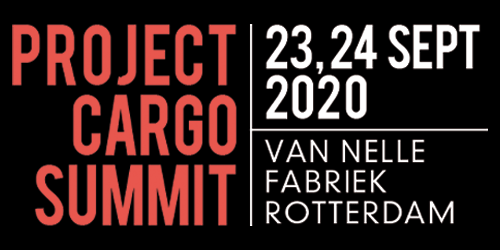“Combining business cultures of decade long rivals was challenging”
After successfully merging Gearbulk and Grieg Star into the largest breakbulk shipping company in the world, Rune Birkeland has resigned as CEO of G2 Ocean per the 1st of January, 2020. “Looking back, the biggest challenge was to create a new, joint business culture for employees who had been competing for 30 years”, he tells PCJ.
When Gearbulk and Grieg Star announced their intention to merge their shipping businesses in October 2016, the companies were fierce competitors, both operating in the breakbulk markets with a fleet of large open hatch vessels.
“These companies had very different business cultures and had been competing for 30 years”, says Birkeland. “We wanted to combine the best of both worlds in our services and in order to realize that, we created mixed business teams across the entire organization consisting of both Gearbulk and Grieg Star employees.”
The mixed team structure also applied for Executive Management. Birkeland, who was the CEO of Grieg Star Shipping before he took up the role as CEO of G2 Ocean, was joined by CCO Arthur English, who had been working at Gearbulk for the past 22 years, holding both senior and executive-level commercial positions.
The merged entity became fully operational just seven months later after the announcement, in May 2017. “That was an incredibly busy year for us – I don’t think I had one day totally off”, Birkeland says laughing.
“In the beginning, we made a lot of changes; we streamlined our business processes, which, unfortunately, meant that we had to close offices and say goodbye to coworkers. We also moved to one IT system and implemented new communication channels.”
The main lesson he took away from that year is that a merger of this scale should be approached analytically. “Large organizational changes like this one can’t be successfully completed alone. You have to be a team player and trust your people to do a good job. As a CEO, you can make a big difference by carefully planning and dividing the process into smaller projects, motivating your people and pointing them in the right direction.”
5-year plan
Now operations at G2 Ocean are running as desired, Birkeland has resigned as CEO to return to Grieg Star. There, he will mentor young and upcoming managers, participate in innovation projects and take on some Board positions. He is succeeded by Arthur English, who took over as the new CEO at the beginning of the new year.
Since June 2019, Birkeland, English and the rest of the leadership team have developed a new 5-year strategy for G2 Ocean. It sets clear priorities to how G2 Ocean will enhance customer service, enable growth, improve environmental and innovation performance and secure the right skill set for the future, says Birkeland.
“Decarbonization, digitization and circularity form the backbone of the strategy. Some of our initiatives include increasing fuel efficiency and reducing plastics and waste but we’re also identifying digital and green business opportunities.”
According to Birkeland, the strategy is both an internal as an external development plan. “Internally, we are focusing on implementing smarter, safer, efficient and productive work methods. Working smarter, not harder, will be one of G2 Ocean’s competitive advantages in the future”, he says. “Externally, we are searching for new and more efficient ways to connect with and improve the services for our customers. Our Blockchain Bill of Lading project is an example of that.”
Blockchain bill of lading
Last summer, G2 Ocean tested a new, blockchain-based bill of lading together with Antwerp-based logistics provider Manuchar. The test entailed shipments on a voyage from China to Peru for which all paperwork was exchanged through the blockchain system.
Following the success of the trial, G2 Ocean and Manuchar are now working on the expansion of the system to cover more services. Additionally, the company has three other customers who are interested in using the system.
“In general, our industry is still mail- and paper-based and the project received a lot of interest”, Birkeland says. “Still, we are a long way from a paperless maritime industry. That will require new industry standards and support from banks, but we believe that blockchain technology might be a good solution for the future”.
Critics of the technology say that blockchain won’t take off anytime soon, because of the large amount of power blockchain systems require. Birkeland expects that this problem will be solved when the technology matures.
“At the moment there is no other solution available that provides this level of efficiency and security, but it is true that blockchain requires a lot of computing power and from a sustainability viewpoint, you could argue that it may not be the optimal solution. Hopefully, this will change in the future.”
Moving forward, project cargo will become a bigger part of G2 Ocean’s business, as VP Project Cargo Leif Arne Strommen recently told PCJ in this interview.
morenews
Project Cargo Summit 2024 registrations open
The time has come, we have opened registrations for this year’s edition of the Project Cargo Summit. As it was previously unveiled, the Port of Bilbao will be our host on September 17 and 18. There have been some changes since the announcement.
Project Cargo Summit goes to Bilbao
Following the successful outing in Bremen in 2023, ProMedia and its Project Cargo Summit team have turned their sights to a new adventure and have partnered with the Port of Bilbao. So for the 2024 edition of the Project Cargo Summit, project cargo, breakbulk and heavy lift industry specialists will gather in Bilbao for two… Read more ›
Project Cargo Summit 2024 programme takes shape
Excitement is building for the Project Cargo Summit 2024 in Bilbao, Spain! The dates are locked in (September 17th and 18th), the speaker list is filling up fast, and preparations are underway to make the “Project Cargo Summit 2024: Mega Cargo, Mega Solutions” an unforgettable event.
